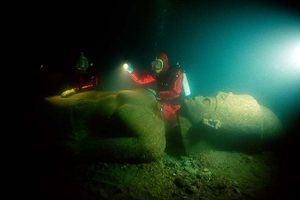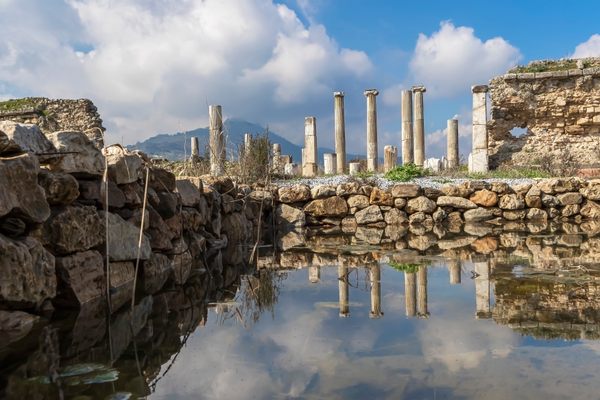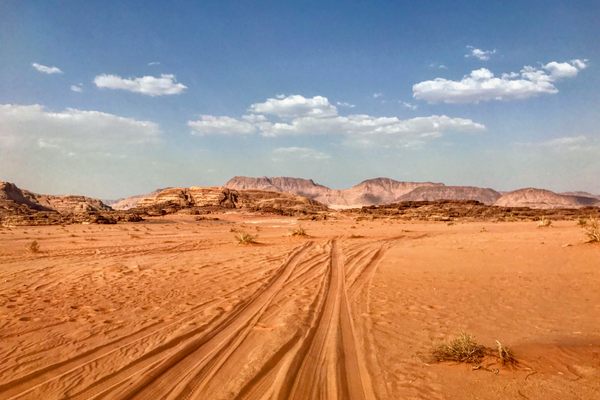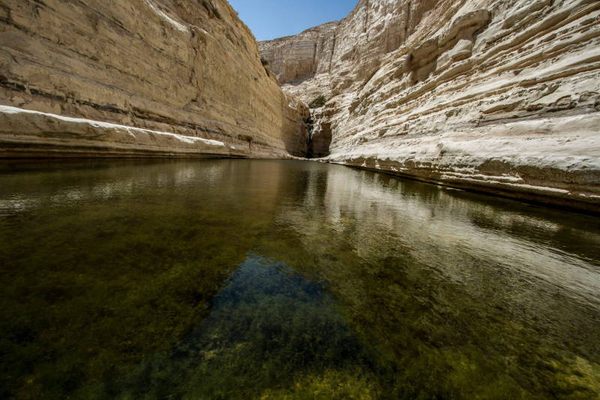About
It was barely more than a legend. Appearing in a few rare inscriptions and ancient texts, the city of Thonis-Heracleion was hidden away for thousands of years, submerged deep under the sea.
After searching for years by screening the vast area of the Abu Qir Bay off the coast of Egypt, French archaeologist Franck Goddio and his team saw a colossal face emerge from the watery shadows. Goddio had finally encountered Thonis-Heracleion, completely submerged 6.5 kilometres off Alexandria's coast. Among the underwater ruins were 64 ships, 700 anchors, a treasure trove of gold coins, statues standing at 16 feet, and most notably the remains of a massive temple to the god Amun-Gereb, and the tiny sarcophagi for the animals that were brought there as offerings.
The ruins and artifacts made from granite and diorite are remarkably preserved, and give a glimpse into what was, 2300 years ago, one of the great port cities of the world. The harbor of Thonis-Heracleion (the Egyptian and Greek names of the city) controlled all the trade into Egypt.
Built around its grand temple, the city was criss-crossed with a network of canals, a kind of ancient Egyptian Venice, and its islands were home to small sanctuaries and homes. Once a grand city, today its history is largely obscured and no one is quite sure how it ended up entirely underwater.
To learn more visit: www.franckgoddio.org
Related Tags
Egypt Family Adventure: Pyramids, Mummies & The Mighty Nile
Cross dream-like deserts and uncover the secrets of ancient pyramids.
Book NowCommunity Contributors
Added By
Published
July 21, 2016


















































